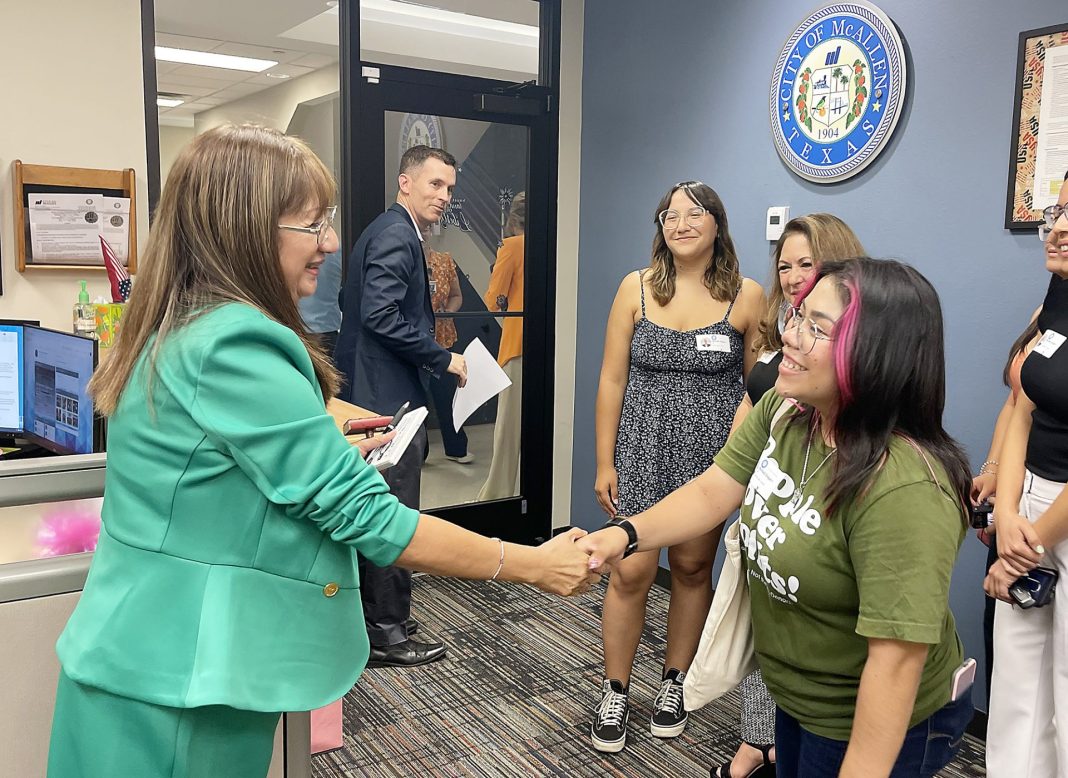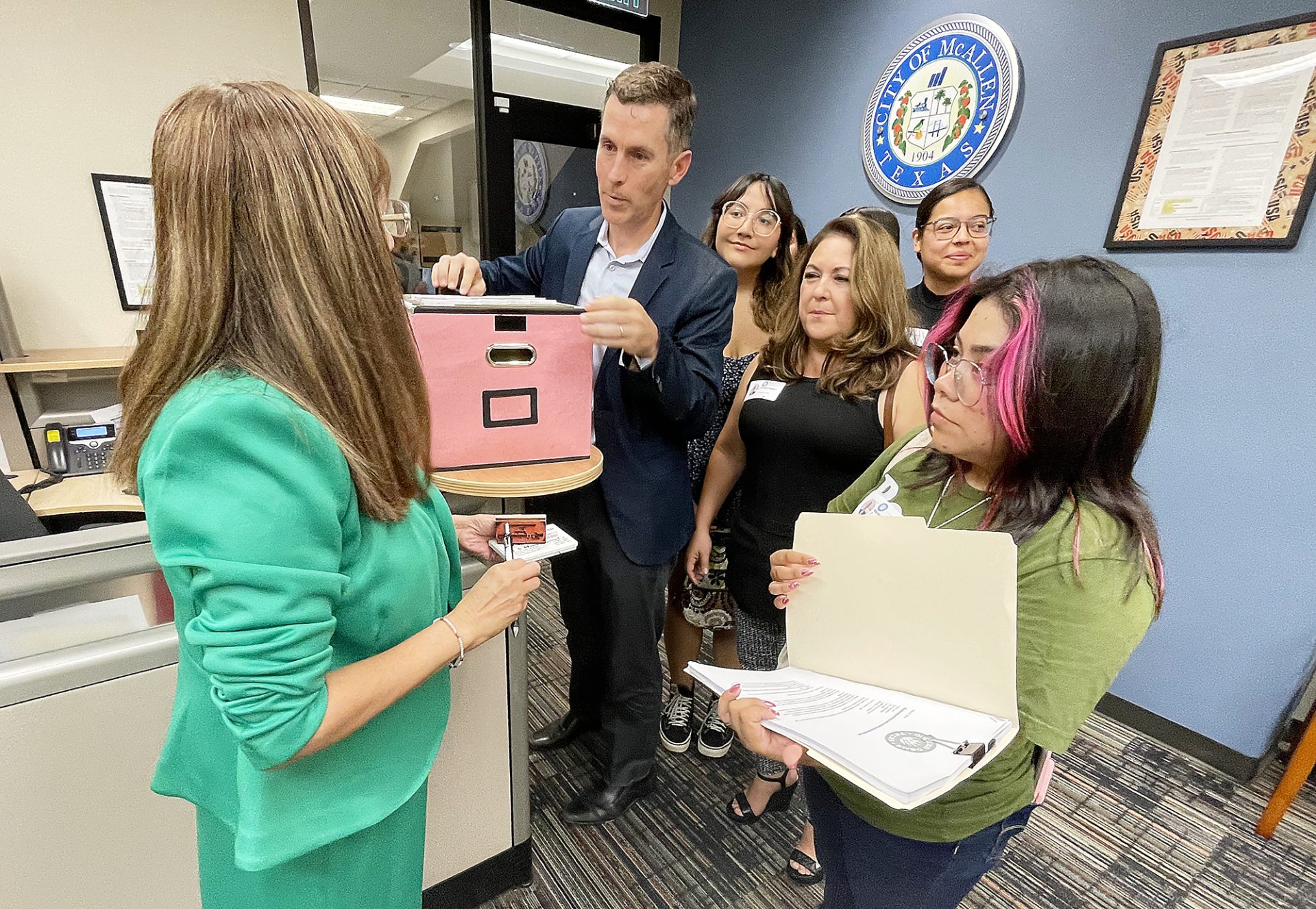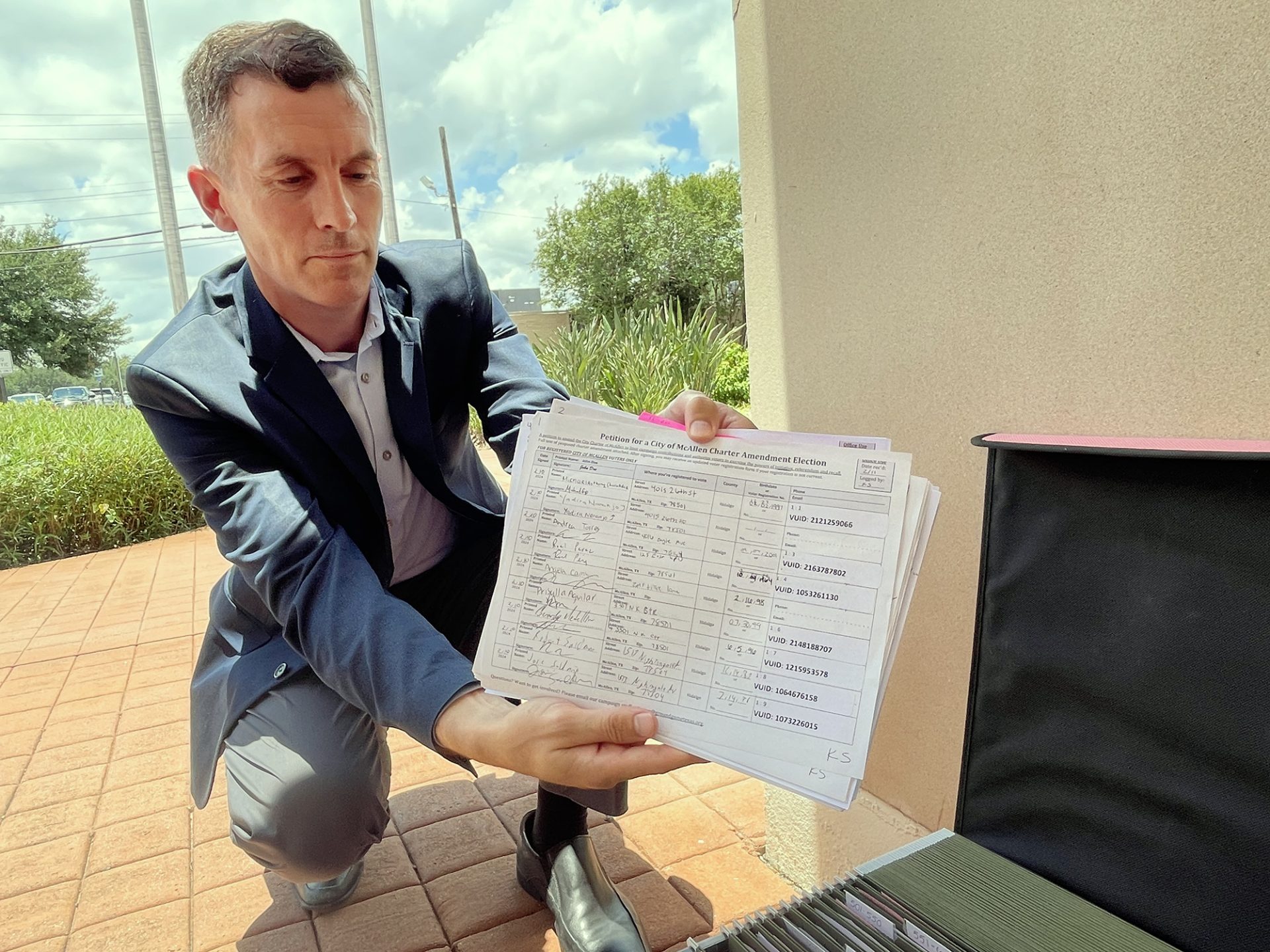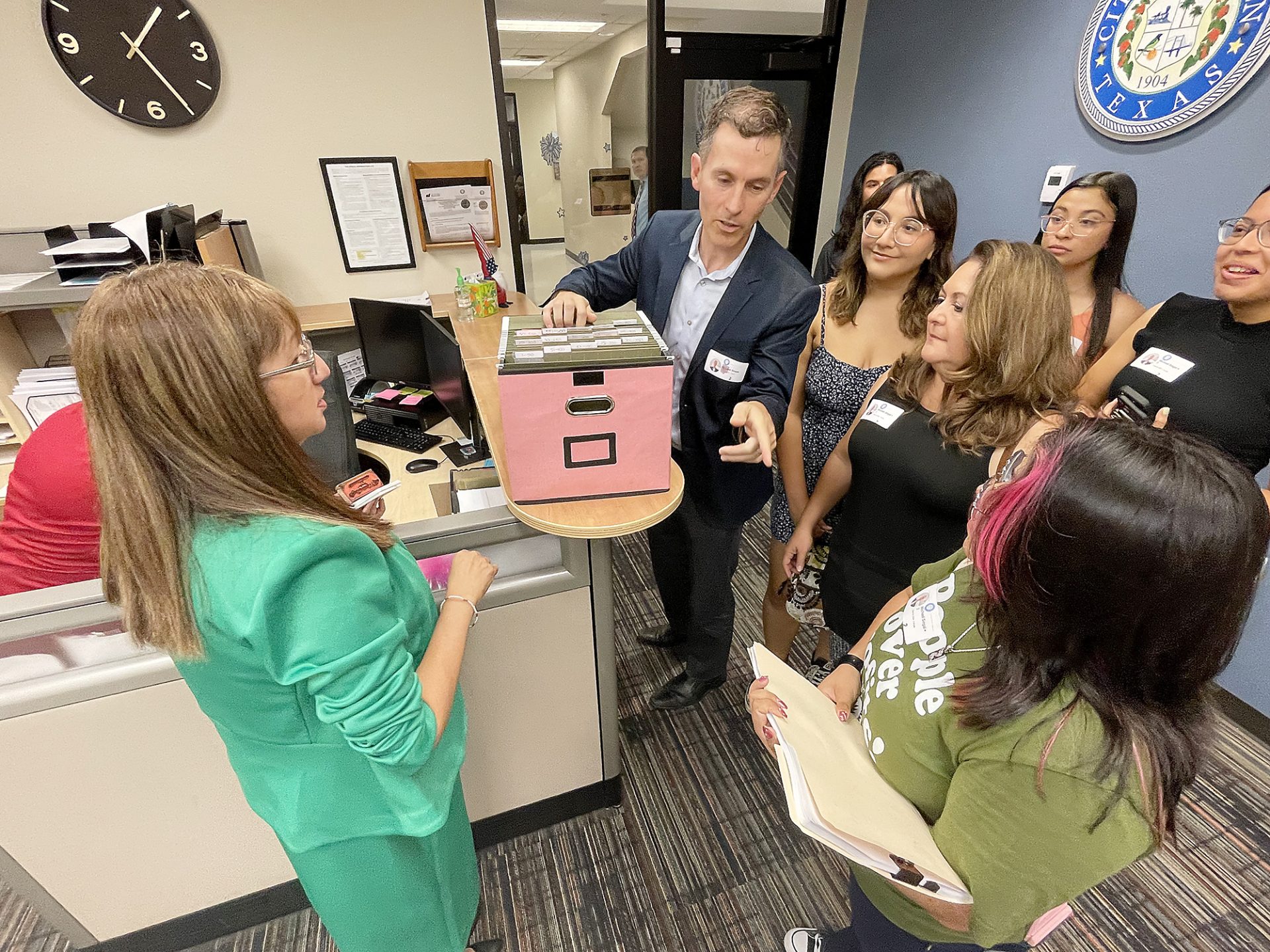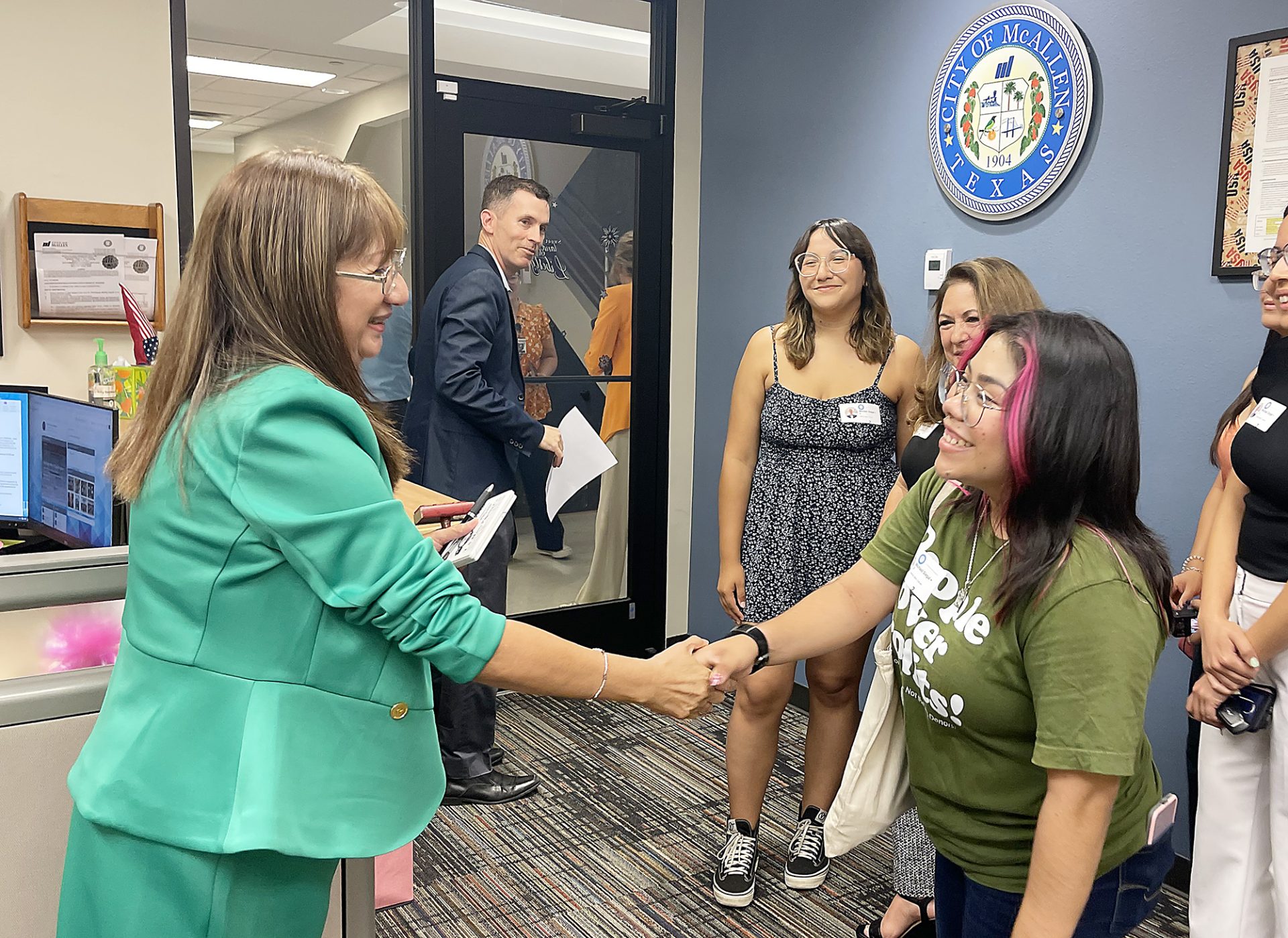|
Only have a minute? Listen instead
Getting your Trinity Audio player ready...
|

McALLEN — A statewide grassroots nonprofit that has already spurred several progressive changes in cities throughout Hidalgo County now has its eyes set on an anti-corruption campaign here.
Ground Game Texas is calling for the city of McAllen to put campaign finance reform and so-called “direct democracy powers” on the November ballot.
To that end, members of the organization delivered some 4,500 signatures from registered McAllen voters to McAllen City Hall, where they hope the city secretary will certify them and put the matter before the city commission.
“We’re proposing campaign contribution limits,” said Karen Salazar, a UTRGV political science student who has served as campaign manager during the monthslong signature gathering efforts.
“We want to reduce the maximum amount of money that any single person or business can donate to politicians — anyone running for office for mayor and city commissioners,” Salazar said as she and a small group of fellow Ground Game volunteers stood in the shadow of city hall on a scorching afternoon Monday.
Should the city accept the signatures and call for a special election this fall, the group hopes McAllen voters will agree with them in reducing campaign contributions to just $500 per contributor.
Currently, donors can contribute up to $10,000 per person in a race for McAllen mayor and $5,000 per person in a race for city commissioner.
The grassroots organization is also calling for a charter amendment that would give McAllen residents greater abilities to call for change, what Ground Game General Counsel Mike Siegel referred to as “direct democracy powers.”
“Part of what we loved about this city is we could do two things at once — we could create these direct democracy powers — you know, initiative, referendum and recall, which don’t currently exist … while also taking on this important issue of campaign finance reform,” Seigel said Monday.

Siegel added that Ground Game chose McAllen for another reason. As Hidalgo County’s largest city, the organization hopes that implementing change here will spur similar change in other cities throughout the Rio Grande Valley.
But not everyone is happy with Ground Game’s efforts here.
District 2 Commissioner Joaquin “J.J.” Zamora admits that McAllen enjoys a long history as a trend setter.
“As the mantra goes: ‘As McAllen goes, the Valley goes,’” Zamora said while sitting in the McAllen City Commission legislative chamber after a meeting Monday evening.
However, Zamora and other city leaders have pushed back on the idea that the city is prone to corruption in need of fighting.
“If the point was to try to defeat and end corruption, again, I go back — I’m a prosecutor … give me a call,” Zamora, an assistant district attorney for Hidalgo County said.
“I’ll be more than glad to have a DA interview you or speak with you about any allegations because I would be the first to rat somebody out on this board. It wouldn’t be very difficult for me, and I could do it,” he added.
McAllen Mayor Javier Villalobos’ reaction went a step further.
“I think, honestly, to me, it’s really a waste of time right now,” he said of Ground Game’s efforts.
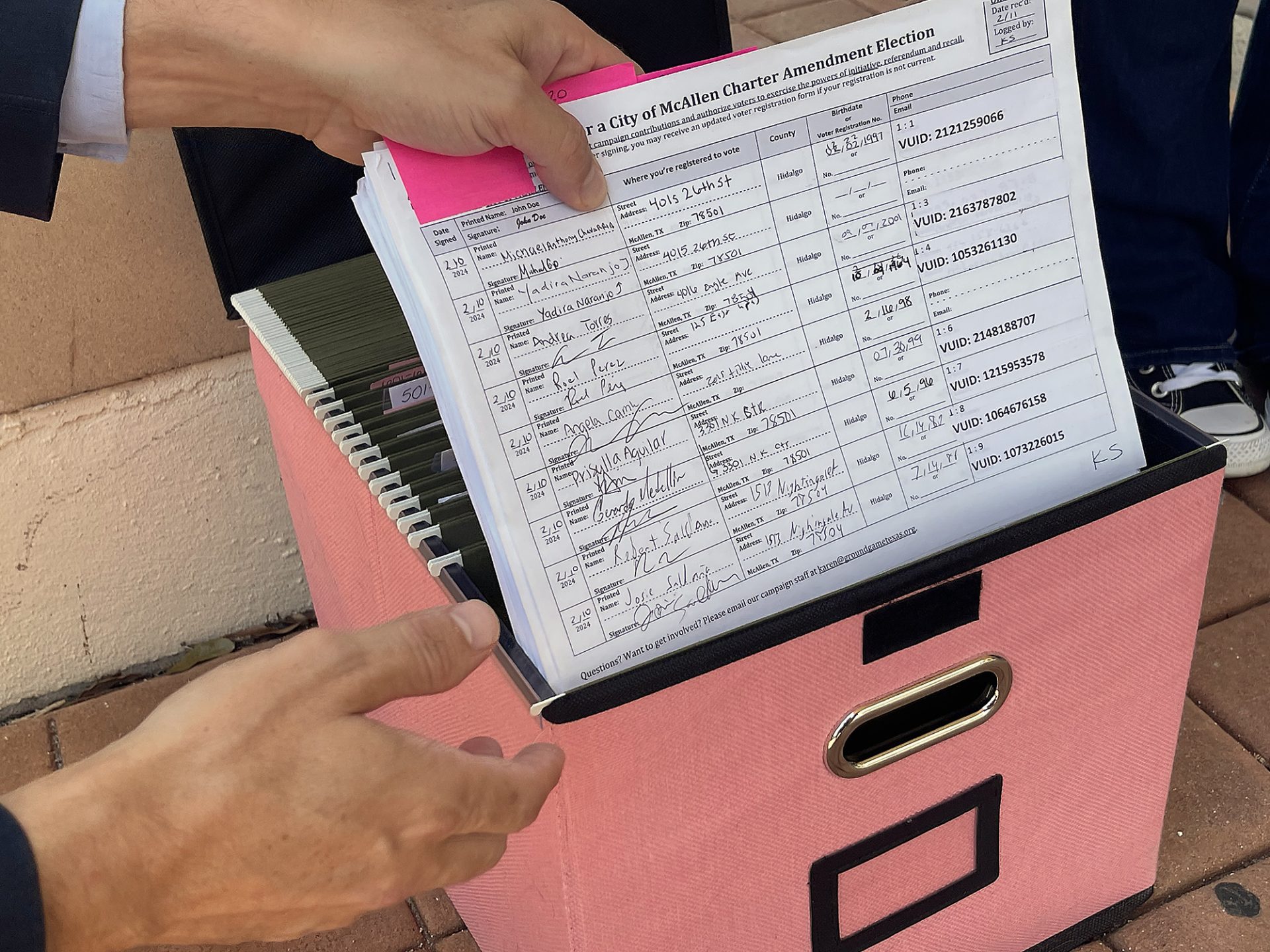
“That’s specifically the reason I hate what they’re saying: anti-corruption. Because I have never seen (it) — and I hope it never happens in McAllen,” the mayor added a moment later.
Both officials admit that the Rio Grande Valley is no stranger to jarring headlines proclaiming the criminal misdeeds of those in elected office.
Currently, more than a dozen elected officials from Western Hidalgo County have pleaded guilty to, or are awaiting trial, on federal corruption charges spanning bribery, kickbacks and political intimidation.
And as recently as 2022, a massive bribery scheme in Weslaco netted the federal convictions of several former elected officials who represented the city, Hidalgo County, and private enterprise.
But those kinds of headlines have rarely — if ever — involved a McAllen official.
For Zamora, that’s entirely the result of McAllen residents making wise decisions at the ballot box.
“We have always been blessed with city management, city leadership,” Zamora said.
“We are entrusted with that and I think the citizens here are the ones to be commended for all these decades — since 1911 … that they put that trust in people of the city to do what’s well, to do what’s best for the city,” he added a moment later.
Like the mayor, Zamora thinks Ground Game should have focused their anti-corruption efforts in communities where that corruption has occurred.
“I’m not gonna name them by name, but I think we know who they are — Western Hidalgo County,” Zamora said.
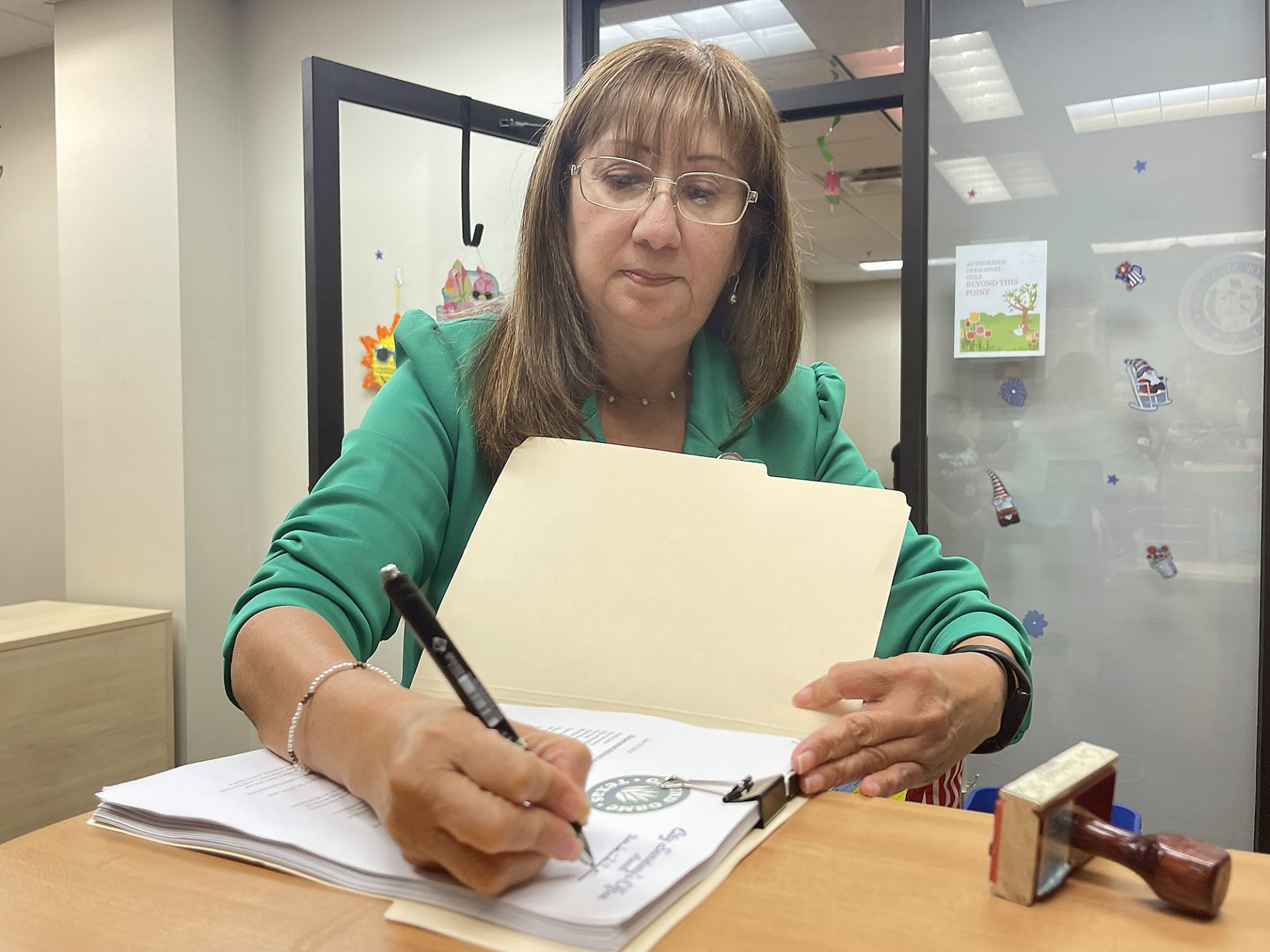
The mayor had another concern.
He worries that shrinking campaign contribution limits could lead to the very corruption Ground Game is attempting to combat.
“I think they’re a little misguided … I think instead of making it what they’re trying to do, I think it’s gonna dirty things up — or it could,” Villalobos said.
The mayor fears people could attempt to disguise larger contributions via proxy donors.
“Somebody that’s unscrupulous can give $10,000 to 20 people (to donate to a campaign) and now you’ve just made a mess. Whereas if somebody donates, you know exactly who it is,” he said.
Villalobos isn’t the only one concerned.
Laurel McLeaish, a retired attorney who regularly sits in on McAllen City Commission meetings, and who occasionally offers public comment at those meetings, said lower campaign contribution limits could lead to less transparency.
“I congratulate Ground Game Texas. They have done some magnificent work in other areas. In this one, I think they’re off because campaign contribution limits do not work,” McLeaish said.
She would know, having previously worked for the Federal Election Commission.
Currently, state law requires that government entities post a candidate’s campaign finance reports online.
Candidates are required to file several reports per year — semi-annual reports in January and July, and election cycle reports 30 days and eight days before an election day.
Those reports must list who made financial and/or in-kind donations, the dollar amount or value, and the date.
Campaign expenditures must also be listed.
But McLeaish worries that political donors may try to obfuscate donations in excess of the $500 limit by creating political action committees to disguise the larger contributions.
“You have that lack of transparency. You have to go another step and go look at the Texas Ethics Commission to find out who each one of these PACs is,” she said.
“Now we know with one stop. There, we’d have to do multiple stops and I think it’s gonna be a lot harder. Transparency is what you need, not limits,” McLeaish said.
But for Ground Game Texas, smaller limits would mean elected officials would be held to more equitable accountability.
“If you can get all your money from a small group of people, you’re only going to be accountable to those people, whereas if you need to reach out more broadly … that means you’re gonna be more accountable,” Siegel said.
Nonetheless, it will still take a considerable amount of time before Ground Game’s efforts have a chance of being put to a citywide vote.
The city must first certify the petition, then the commission needs to call for a special election.
“McAllen is a different animal,” Villalobos said.
“And if we hold an election, I really hope that the residents, the citizens of McAllen realize that it’s something that’s not needed,” he said.

